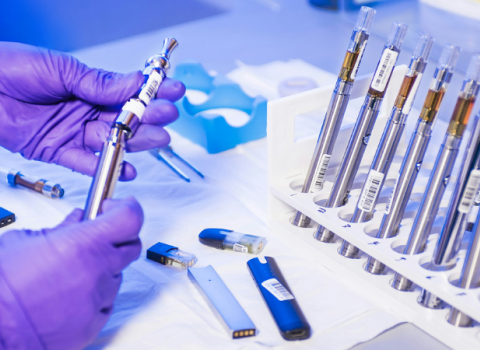German researchers inspired by the mussel’s ability to stick fast to the smooth hulls of ships have developed a glue that they say could replace the use of sutures when inserting implants such as heart valves.
The glue developed by Klaus Rischka, a chemist at the Fraunhofer Institute for Manufacturing Engineering and Applied Materials Research (IFAM) in Bremen, in collaboration with researchers at Frankfurt University Hospital, the Centre of Biotechnical Engineering at Darmstadt University of Technology, the State Materials Testing Institute and the implant manufacturer Straumann in Freiburg, will initially be tested on dental implants made of titanium.
It is current practice to anchor tooth implants in the jaw bone without an adhesive. This often leaves gaps between the gums and the metal, allowing bacteria to enter and cause infections. An adhesive that firmly connects the gums to the implant would serve as an barrier against germs. Conventional products are not suitable, as they sooner or later dissolve in the moist environment inside the mouth.
Mussels have developed a glue that not only works under water, but is also a particularly firm and lasting bonding agent. The strength of the bond is due to a particular protein. Chemists at IFAM have synthesised the key elements of this mussel “glue” and added a growth promoter to stimulate cell growth so that the body’s own tissue bonds as closely as possible with the implant. A third component, in the form of a classic polymer, is then added as a carrier substance. The researchers now plan to spend the next two years testing the glue in live applications.





 A unique international forum for public research organisations and companies to connect their external engagement with strategic interests around their R&D system.
A unique international forum for public research organisations and companies to connect their external engagement with strategic interests around their R&D system.